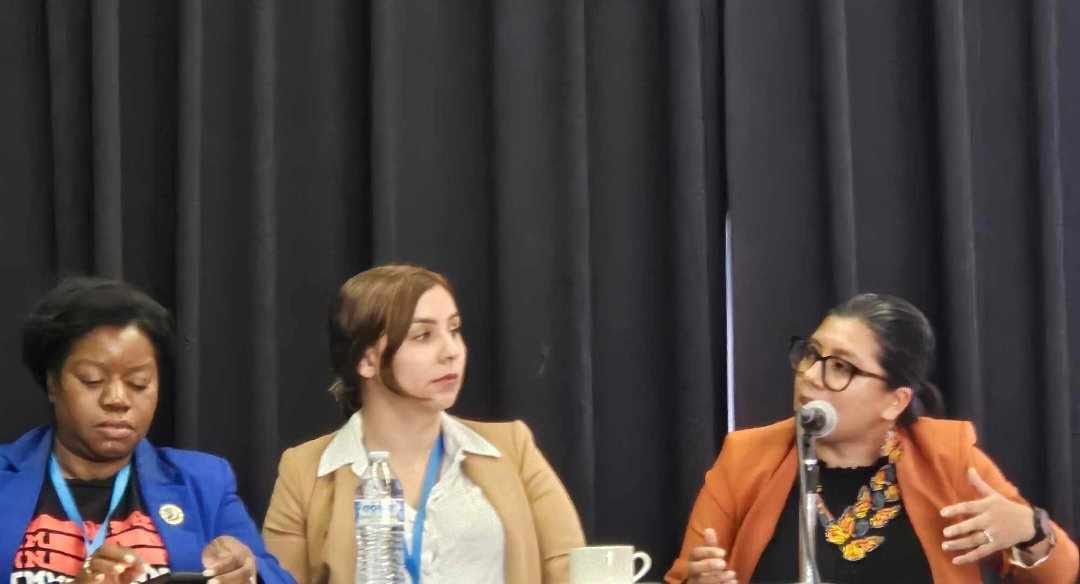Thanks for the excellent response to our call for translation volunteers. We have begun working with some dedicated translators but there is always room for more. Please contact us at americas@irc-online.org if you are interested. And look out for their great work!
This Week in the Americas
The Slow Slide to Barbarity
By Laura Carlsen
July 4, 2020. U.S. Border Security officials announced that a record 193 IFs (Immigrant Invading Forces) were eliminated in the American Militarized Security Zone yesterday as a result of illegal attempts to invade the homeland.
In response to the latest deaths—the highest fatality count since last week’s record-setting 177—a press release from Border Security (BS), a division of the U.S. Department of Homeland Security, states: "The high number of aliens whose attempts to invade U.S. territory were thwarted reflects the continued success of the combined technological and military measures to secure the border. While the division laments the loss of life, Americans can sleep soundly knowing that the sacrifice of our troops has once again protected them from hostile threats to the American way of life."
For its part, the Mexican government immediately issued a statement apologizing for the surge in lethal attempts to incur in U.S territory, and promising to increase raids on "potential migrating groups," both in border zones and in the 30 states throughout the nation that report "high to extremely high" out-migration rates.
In its daily bulletin, the Binational Body Recovery Unit (BBRU) reported that of the deaths along the Territorial Delineator, 77 aliens died of electrocution along the Laredo-Brownsville high-amp fence, 37 were shot to death by border troops for suspicious actions, 46 died from land mine explosions, and 33 from exposure to toxic substances after attempts to forge the Rio Grande.
In the northern part of the American Militarized Security Zone—a hundred-mile wide swath along the length of the former U.S.-Mexico border, expropriated by the U.S. government for security reasons in 2013—another 15 immigrants were hit by moving vehicles while fleeing ground troops or aerial fire, and 17 expired from exposure or dehydration in the Sonora desert.
The youngest victim of yesterday’s toll was six-month old Clara Sanchez, shot in the arms of her mother, Fidelia Rodriguez as she fled for cover in the Sonora desert near Douglas, Arizona. The U.S. Border Patrol reported that the young woman was seen "concealing a suspicious object" assumed to be contraband and failed to respond to orders in English to halt immediately (the Border Patrol is prohibited from giving orders in Spanish as a result of the 2015 "English Only" regulation which applies to all government services).
Family members confirmed the identity of the oldest victim as Juvencio Lopez, 72 years. Lopez’s sons, construction workers in Santa Rosa, California who requested anonymity to avoid prosecution, said that their father had recently been diagnosed with cancer and made the decision to come north to say good-bye to his children. The brothers, who have not seen their father for 35 years since they left their native village of Tlaxiaco, Oaxaca, stated that they tried to warn the old man of the dangers of attempting the journey, but that he refused to be dissuaded. The Border Security and Immigrant Control Reform of 2010 eliminated the final remaining mechanisms for family reunification and visitation rights.
Following the BBRU announcement of yesterday’s record casualties, the underground human rights group, Migrants are Human, immediately issued a statement calling the deaths "the latest high-water mark in a tide of inhumanity" and urged local communities to strengthen clandestine sanctuary efforts. All government and non-governmental services to migrants were criminalized in 2009 as a result of the backlash against the broad immigrant mobilizations of 2006-2009.
In a related story, the president of the Border Business Council reported that the presence of over 50,000 troops in the region has caused an exodus of legal businesses and consumers. Since the 2010 crackdown on immigrant invaders, Mexican shoppers who filled Texas malls have virtually disappeared behind the tortilla curtain, leaving a landscape marked by the giant shells of abandoned commercial centers, many of which have been converted to immigrant detention centers. U.S. consumers have been unable to fill the void due to the depression resulting from massive labor shortages and economic paralysis in the region.
Real estate values have also plummeted in the region, according to the latest realty association reports. Since then-Border Patrol Director David Aguilar’s announcement on May 9, 2007 authorizing the use of firearms against unarmed migrants, the sound of gunfire has become a daily occurrence and families that have lived in the area for generations have moved out to escape the violence. Local school psychologists report that symptoms of school-age children are similar to those found in prolonged war situations, and the presence of low-flying unmanned surveillance aircraft, ground troops, and persecutions have resulted in a climate of fear that is internalized by the children.
************
Today, 2007, the steep increase in immigration throughout the world reflects major changes in the international economy. Global migrants are not only a result of these changes; migrants are also powerful agents of change. The personal decision to leave—multiplied by thousands—transforms the communities that are left behind, the receiving communities, and the migrants themselves.
Change causes fear. Yet knee-jerk reactions against change can cause far more damage. If, as a society and as citizens, we do not take responsibility for directing the economic and social transformations that are taking place, and work together to respond with rational and humane policies, we will soon find ourselves moving toward the barbarity portrayed above.
We have not yet reached the year 2020, when hindsight will yield only a cruel "I told you so." We still have a chance to ask ourselves what kind of society we are, and what kind of society we want.
Answers are not easy, but supposed solutions that build walls, divide people, foment hate, and increase violence lead only to barbarity.
* All statistics on present and past dates are real, all future are extrapolated from present trends.
Laura Carlsen is director of the IRC Americas Program in Mexico City, where she has worked as a writer and political analyst for the past two decades. The Americas Program is online at http://americas.irc-online.org/.
Measuring the Cost of Lost Policy Space at the WTO
By Kevin P. Gallagher
Recent findings imply that developing nations should exercise great caution in negotiating measures in the WTO’s Doha Round that further restrict policy space, especially given the small gains projected to arise from a likely deal.
Kevin P. Gallagher is an analyst for the IRC Americas Program, online at www.americaspolicy.org. He is a professor of International Relations at Boston University and Senior Researcher at the Global Development and Environment Institute (GDAE), Tufts University. His recent books are Putting Development First: The Importance of Policy Space at the WTO (Zed Press, 2006), and with Lyuba Zarsky, The Enclave Economy: Foreign Investment and Sustainable Development in Mexico’s Silicon Valley (MIT Press, 2007). This policy brief is part of the joint GDAE-South Centre Project, “Operationalizing Policy Space.”
See full article at:
http://americas.irc-online.org/am/4078
U.S. Trade Winds No Longer Prevail
By Tom Barry
Over the past three decades the U.S. government has sought to ensure its political and economic control over the Americas with an array of trade deals—starting with the Caribbean Basin Initiative of 1983 and continuing through the North American Free Trade Agreement of 1992 and more recently with assorted other free trade agreements (FTAs) with the Central American nations, Dominican Republic, and Chile, among others. In part, U.S. trade initiatives have been politically motivated as the U.S. government has sought to bolster U.S. hegemony and to keep countries tied to U.S. policies—ranging from reinforcing rightist regimes to bolstering country support for the U.S.-led drug war to restructuring economies according to neoliberal formulas. Trade deals have also been part of a strategy to ensure that U.S. investors and exporters have privileged access to the region’s markets.
It’s unlikely that the United States will ever again be able to advance a regional free trade accord, but it’s not clear that resurgent nationalism and regionalism in Latin America will result in sustainable economic and political systems. The lull in the U.S. trade winds has left the region with no clear navigation route, and a chance to set sail in new directions. The challenge is to move toward more self-directed economic and political solutions in Latin America and the Caribbean.
Tom Barry is policy director of the International Relations Center, online at www.irc-online.org.
See full article at:
http://americas.irc-online.org/am/4132
Ecuador’s Prolonged Instability
By Raúl Zibechi
Ten years ago political and social instability came to Ecuador with the sudden emergence of new actors organized in a strong indigenous movement. These actors actively opposed the entrenched elites that have long refused to give up their control over the state. While President Rafael Correa’s victory in the referendum to convene a constituent assembly could lead to changes in state control, it is no guarantee that Ecuador’s seemingly chronic instability will decline.
Correa scored an overwhelming victory in the referendum held April 15, in which more than 80% of the electorate voted in favor of his proposal to convene a constituent assembly. The referendum now paves the way for elections to choose delegates amid extreme polarization between the administration and the right.
Raúl Zibechi is a teacher and researcher of social movements at the Multiversidad Franciscana de América Latina, and adviser to social groups. He is a monthly collaborator of the IRC Americas Program (www.americaspolicy.org). Translated from “Una prolongada inestabilidad” by Alan Hynds.
See full article at:
http://americas.irc-online.org/am/4180
The New Tortilla War
By Luis Hernández Navarro
Why has the price of the tortilla risen in Mexico? There are three reasons. First and foremost, it is due to hoarding and speculation by the agro-industrial monopolies. Second, the rising cost of gasoline, diesel, and electricity has affected production, transport, and processing costs. And third, the international price of corn increased due to its use in ethanol production. Only by looking at all three of these factors together, can we understand the recent spike in the cost of Mexico’s staple food.
Today we are experiencing a new tortilla war, which, unlike the previous one of the 90s between companies, is being fought by the large agro-industrial corporations against the poor.
Luis Hernández Navarro is Opinion Editor at La Jornada in Mexico, where parts of this text were published. He is a collaborator with the Americas Program online at www.americaspolicy.org.
See full article online at:
http://americas.irc-online.org/am/4205
Talking Points: Costa Rica Protests U.S. Free Trade Agreement
These concise talking points sum up the reasons for the opposition in Costa Rica to the pending free trade agreement with the United States.
See full article online at:
http://americas.irc-online.org/aptp/4104
New Featured Partner: Civil Rights Association (ADC)
The Civil Rights Association (La Asociación por los Derechos Civiles in Spanish) is a non-profit, non-partisan, non-governmental Argentine organization, created in 1995 with the mission of contributing to the assurance of a legal institutional culture that guarantees the peoples fundamental rights, based on respect for the Constitution and democratic values.
For more information:
http://americas.irc-online.org/am/4163



